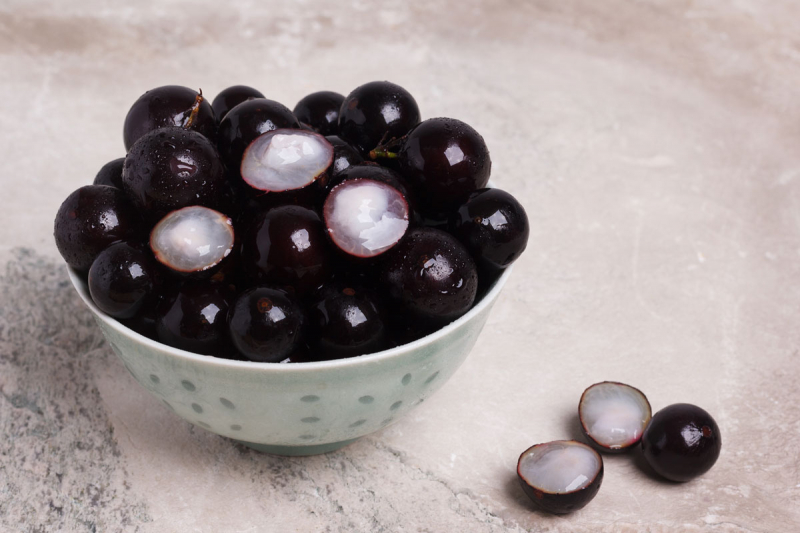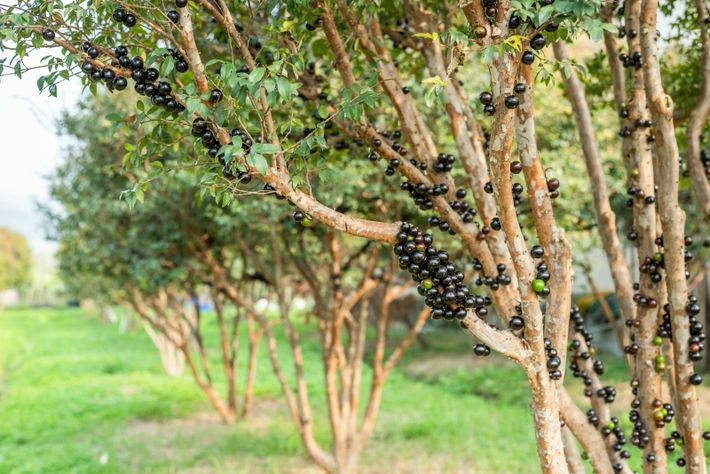Jabuticaba
Jabuticaba, botanically classified as Plinia cauliflora, is a South American fruit belonging to the Myrtaceae family. It is a tropical or subtropical evergreen tree native to Brazil that produces thick-skinned purple fruits that resemble large grapes. Jabuticaba is one of the most popular native fruits in Brazil and is also known as Jaboticaba and Brazilian Grape tree. It is widely consumed fresh when in season and as a juice product and preserve year-round. As a result of its highly perishable nature, fresh Jabuticaba fruit is rarely available outside of its immediate growing regions.
Round in shape, jabuticaba fruit resembles a concord grape in look as it matures from a brilliant green when immature to a dark purple, purplish-black when completely ripe. The Jabuticaba's rough skin, which is typically one inch in diameter, has a tannic and resinous flavor. One to five flat, spherical, light brown seeds is enclosed in a pulpy, transparent, and rosy pink flesh within the skin. Jabuticaba flesh's flavor has been compared to that of muscadine grapes, which are prized for their fruity and floral characteristics. It is a cauliflorous tree, which means that rather than stems, the flowers and fruits develop directly from the trunks and substantial branches of the tree.












